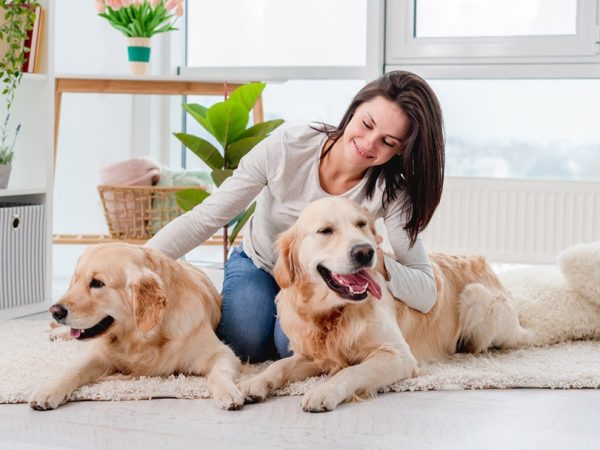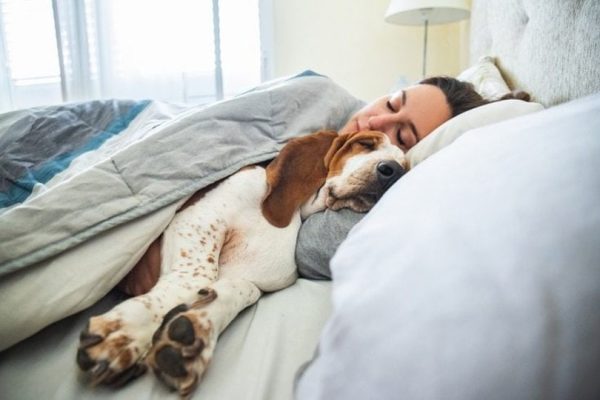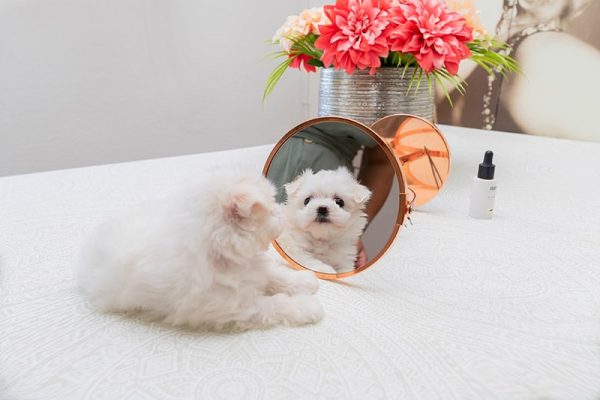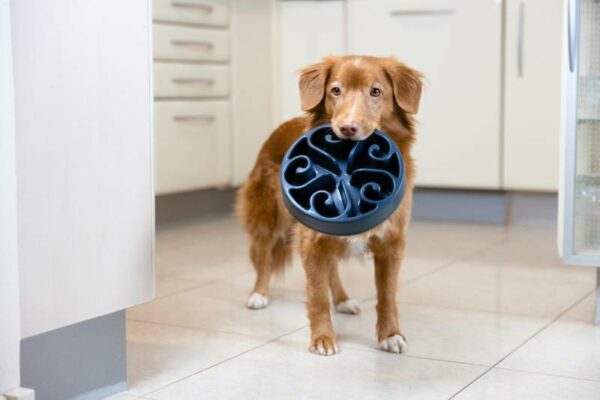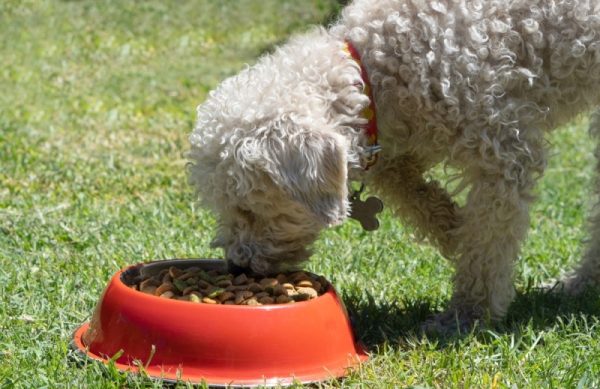You already know that you must housebreak your dog. However, that doesn’t make it less frustrating when it seems like all the training went out the window after you find a mess on your couch. Canines are very scent-oriented and will often go back to the same spot to eliminate because of the smell, making a quick resolution imperative.
So, why exactly is your dog pooping on the couch? While it’s not always something of concern and could be a one-off occurrence, there are definitely other reasons that are more concerning. Let’s take a quick look into some of the potential reasons for this behavior just below.

Effective Cleanup
Some of the causes of inappropriate elimination on your couch have simple remedies for the problem. For example, cleaning the stains with an enzymatic spray can effectively remove odors attracting your dog to the sofa. Old stains may require more than one application to eliminate the smell completely. You should also consider confining your pup and keeping them from the area.
If you're looking for an all-in-one, pet-friendly, enzyme cleaner, we highly recommend the Hepper Advanced Bio-Enzyme Pet Stain & Odor Eliminator Spray.
- ADVANCED ENZYMATIC CLEANER - Penetrates the most stubborn smells and stains at the deepest molecular...
- FOR ANY MESS, ON ANY SURFACE - This pet odor eliminator cleans your carpets, floors, furniture,...
- FRESH, NATURAL ODOR - Our unique formulation doesn't rely on dangerous or unpleasant chemical...
It eliminates tough stains and odors easily and is excellent for accident prevention. Plus, it comes with a 100% satisfaction guarantee! Click here to order now.
At Dogster, we’ve admired Hepper for many years, and decided to take a controlling ownership interest so that we could benefit from the outstanding products of this cool pet company!

The 8 Reasons Why Your Dog Is Pooping on the Couch
1. It Was an Accident

If your dog is otherwise well-behaved, you should give them the benefit of the doubt. When it comes to pets, sometimes accidents just happen from time to time, and there isn’t much that can be done about it other than cleaning it thoroughly and moving on. However, if your dog is acting out of character or is displaying other negative signs, you definitely need to take them in to see a vet.
2. In Need of a Remedial Housebreaking Lesson
Breeds vary in their ease of housebreaking. Anecdotally, some canines reputed to be difficult include Pomeranians, Pugs, and Beagles. An accident may mean it’s time for a remedial housebreaking lesson. It can take some pets up to 6 months or more to become fully trained. That’s particularly true with puppies that aren’t fully developed and able to control their bowels. However, even with dogs that have been trained for a while, it isn’t going to hurt to touch up on it from time to time.
3. Poor Cleanup
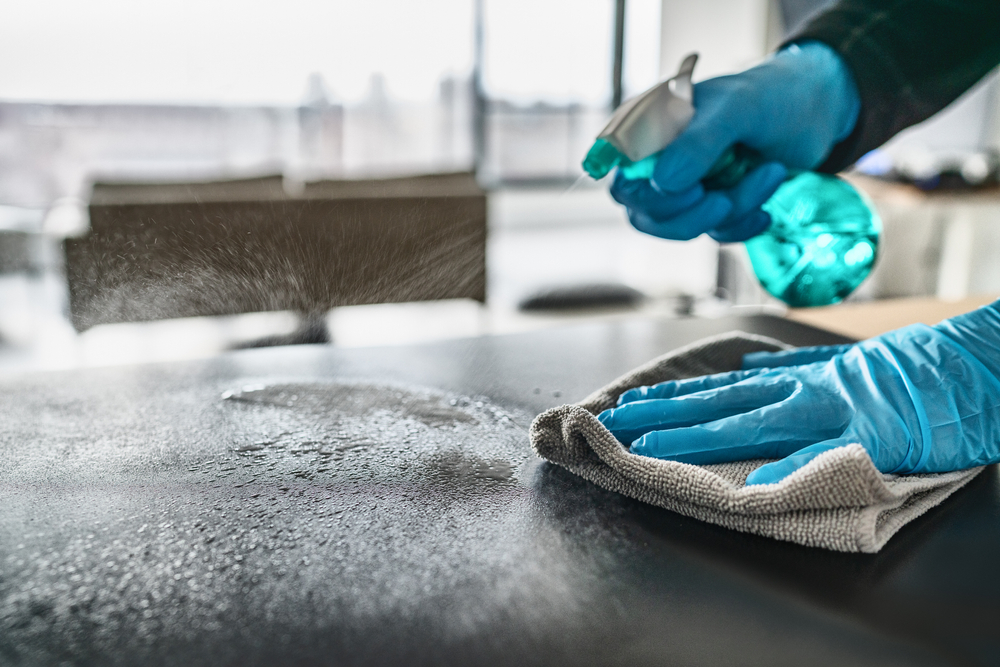
Sometimes, the problem rests with the caregiver. We mentioned how smell or olfaction is vital to canines. It’s one way they communicate with other dogs. Canines often return to the same places that they were eliminated. So, if someone didn’t clean up the mess thoroughly, your pup may regard the couch as their new potty spot thanks to the lingering odors that might not be present to you but can surely be smelled by your pooch. This explains why when a new puppy enters the house the older dog often starts going in the house too. We recommend using an enzyme cleaner to remove odors.
4. Too Few Potty Breaks
Dogs need a regular schedule of going out to do their business. If your dog is soiling the sofa, it may have merely been a matter of too much lag time between potty breaks. You should take your dog outside when they wake up from naps and within 15 minutes after eating and drinking. Canines are adept at figuring out the household schedule, so getting them on a routine can go a long way toward preventing repeat occurrences.
5. Marking Behavior
Intact pets are more likely to mark their territory, especially unneutered males and unspayed females in heat. They are more likely to mark with urine though, so this is something to consider if they are doing small pees around the house. Sterilization often curtails the problem. However, we recommend discussing the situation with your vet to make an informed choice.
If you need to speak with a vet but can't get to one, head over to PangoVet. It's our online service where you can talk to a vet online and get the advice you need for your pet — all at an affordable price!
6. Separation Anxiety
Separation anxiety is a behavioral disorder more common in some breeds than others. A pet with this condition might be destructive, but inappropriate elimination is another common sign. Treatment requires persistence and patience. Your vet can discuss training techniques with you, provide management tips, and even prescribe anxiety medication or refer you to a behaviorist if necessary.
7. Medical Condition

Many medical conditions can cause a dog to soil your home. They range from accidental poisoning to gastrointestinal disorders. It can even occur because of cognitive dysfunction. Suppose this behavior is unusual for your dog or they show other signs of illness. In that case, we suggest bringing your pet to the vet for a complete workup and history to rule out a health problem causing the inappropriate elimination.
8. A Senior Pet
Cognitive dysfunction is also a factor with senior pets which can lead them to lose their house training. Some animals may become incontinent as they age. Your dog may need to go outside more frequently. Pain associated with arthritis or other problems may deter your pooch from moving more than necessary. That may lead to include house-soiling with an otherwise well-behaved pet.

Preventing Future Problems
You should monitor your pooch closely when they’re indoors. Take them outside promptly if they start sniffing for a spot to go. Another option is to keep your pet in a crate when you’re not home, but not longer than a few hours. A canine is less likely to soil the place where they sleep than somewhere they can leave afterward.
Reinforcing your dog’s housebreaking lessons can help prevent future accidents. Clicker training offers an excellent way for your dog to learn what behavior gets rewards. A treat after your pet eliminates outside can help make the lesson stick. It creates a positive association between a reward and the desired behavior. Having a schedule can help with your training too, as dogs learn routines very quickly and thrive on them.
Of course, don’t hesitate to discuss the problem with your vet. We mentioned possible medical causes for this behavior. Learning if there’s an explanation for the issue can help keep the peace in your home.
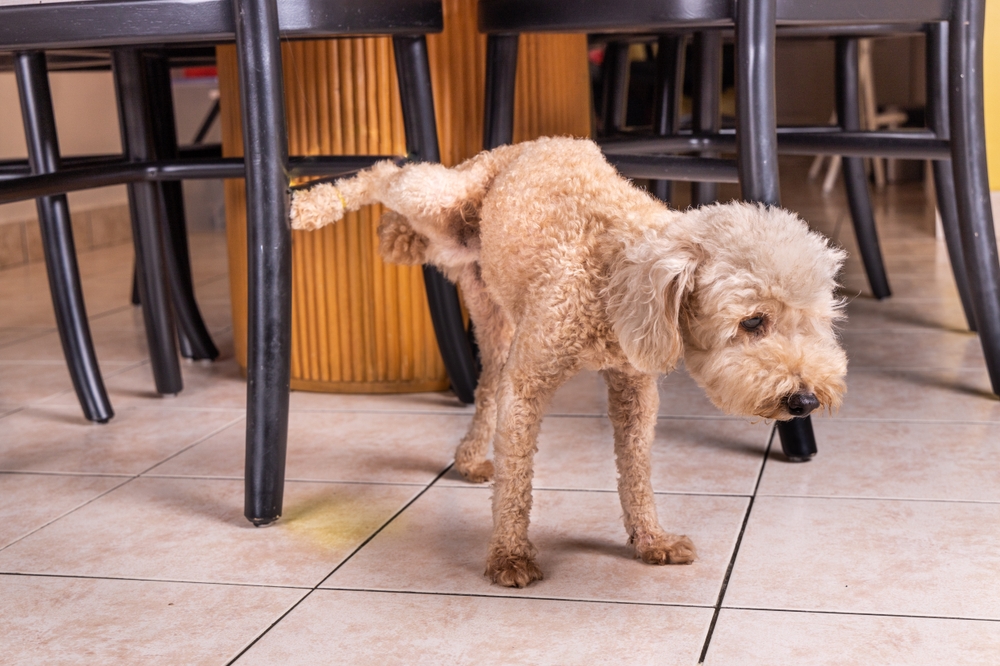

Conclusion
We understand how difficult these issues can be for both the pets and their owners. It’s not something you anticipate if you’ve already trained your dog. However, you can find a solution to this problem, beginning with a vet exam to eliminate medical conditions as the cause. Pet ownership includes taking responsibility for your dog’s well-being, even if it involves unpleasant situations.
Fortunately, you have options for solving this dilemma. Simple adjustments like a routine and regular training can fix the problem. Finding the root of the issue can lead you on the path to a workable solution.
Featured Image Credit: e-Kis, Shutterstock




